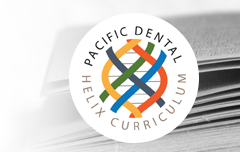Nanovesicles in dental diagnostics and therapy
Introduction/Context/Diagnosis
Exosomes are recently characterized nanometer sized vesicles, released by all cells - including diseased cells and infective microbial cells - that contain patterns of proteins, nucleic acids and lipids that may be unique to their source tissue or disease vector. Their biological roles are broad but include cell to cell communication, cell reprogramming, immune control, control of hard tissue formation and blood clotting. Here we outline the current state of knowledge of exosomes as a diagnostic and therapeutic tool of relevance to dentistry.
Methods/Treatment Plan
A selective review of the literature was performed using Pubmed and Google Scholar. Search terms included “dental exosome” “saliva* exosome” “exosome AND diagnostics”.
Results/Outcome
We describe the mechanisms of exosome function and reveal emerging importance of exosomes to dental and medical diagnostic science in the era of personalized or targeted therapies.
Significance/Conclusions
The unfolding science of patient derived nanovesicles holds real potential for point-of-care diagnostics and the devices under development right now will certainly be joined and expanded on in the near - and not so near - future.
Location
University of the Pacific, Dugoni Dental School, San Francisco, CA
Format
Poster
Poster Session
Senior Research Presentations
Nanovesicles in dental diagnostics and therapy
University of the Pacific, Dugoni Dental School, San Francisco, CA
Exosomes are recently characterized nanometer sized vesicles, released by all cells - including diseased cells and infective microbial cells - that contain patterns of proteins, nucleic acids and lipids that may be unique to their source tissue or disease vector. Their biological roles are broad but include cell to cell communication, cell reprogramming, immune control, control of hard tissue formation and blood clotting. Here we outline the current state of knowledge of exosomes as a diagnostic and therapeutic tool of relevance to dentistry.



